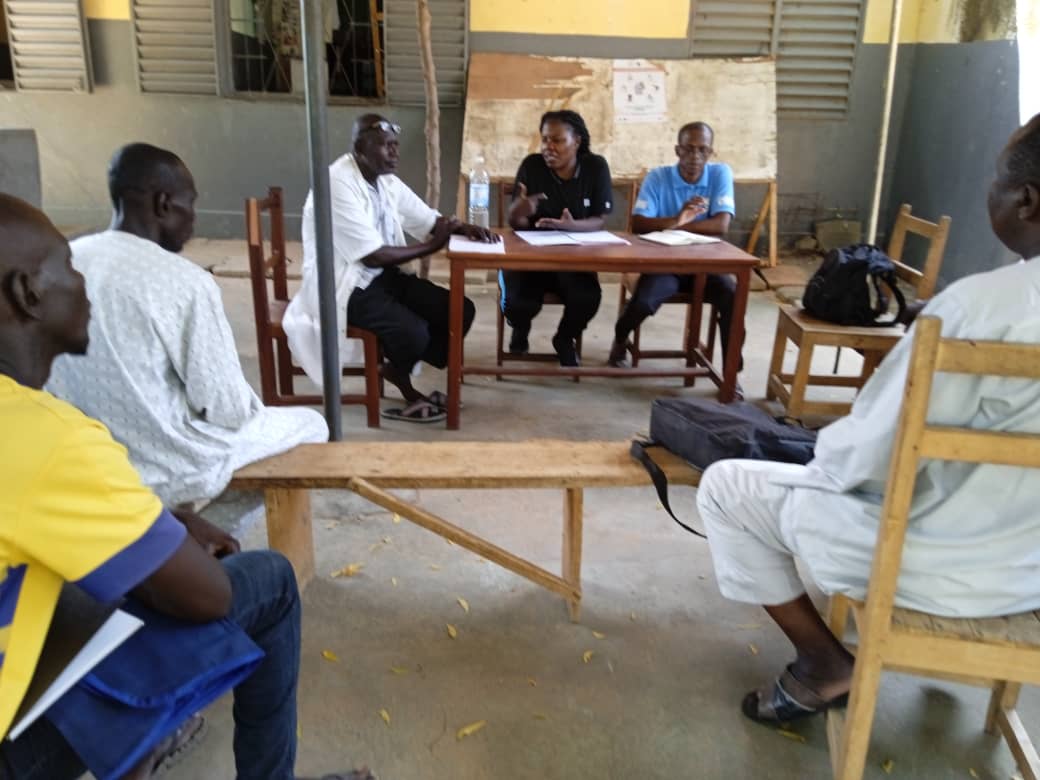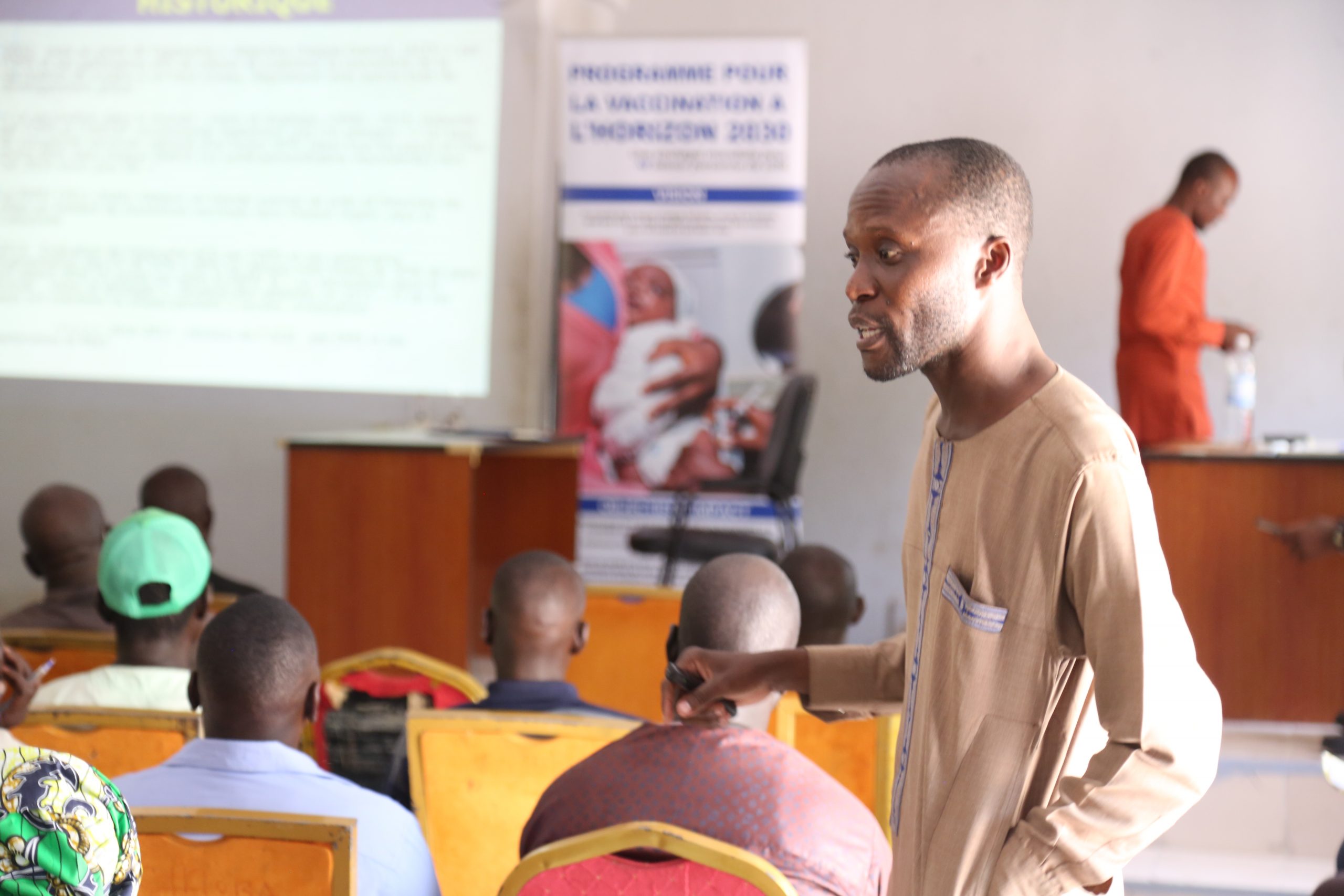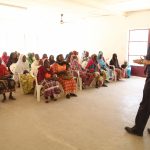Protecting Every Child. Strengthening Every Community.
CBC Health Services Immunization Program is on a mission to ensure no one is left behind. From urban centers to the most remote corners of Cameroon, we deliver life-saving vaccines, empower communities, and integrate essential health services—because every life matters.
Welcome to Our Immunization Program
At CBC Health Services, we are dedicated to protecting individuals of all ages through life-saving vaccines. Our goal is to improve public health, prevent disease outbreaks, and ensure equitable access to immunization services across Cameroon.

Prevents Deadly Diseases:
Vaccination safeguards against diseases like measles, polio, hepatitis, and cervical cancer, reducing illness and death.
Reduces Outbreaks & Healthcare Burden
Minimizes disease outbreaks and lowers healthcare costs for families and the system.
Strengthens Community Immunity:
Protects both vaccinated individuals and those who cannot be vaccinated, promoting overall community health.
Secures a Healthier Future
Vaccines improve health outcomes, support child development, and contribute to a stronger economy.
Partnerships for authentic experiences.
Partner with us
“We collaborate with NGOs, community leaders, and international partners to ensure holistic health support. Join us in expanding immunization coverage and creating a healthier future for all!”
Our Approach
Our Services
Routine Childhood & Catch-Up Vaccinations
Providing essential vaccines for newborns, children, and those who have missed scheduled immunizations to ensure full protection against preventable diseases.
Adult & Booster Dose Immunization
Providing booster doses and routine immunization for adults, including pregnant women, healthcare workers, and other high-risk groups, to ensure lifelong protection against vaccine-preventable diseases.
Inclusive Community & Humanitarian Outreach
Ensuring equitable access to immunization for underserved, crisis-affected, and marginalized populations, including refugees, displaced communities, indigenous groups, and people with disabilities.
Behavior Change & Awareness
Educating communities to overcome vaccine hesitancy, counter misinformation, and promote informed decision-making about immunization.
Training & Capacity Building
Strengthening the skills of health workers, community leaders, and volunteers to enhance service delivery, vaccine administration, and community engagement.
Health System Strengthening & Logistics
Enhancing vaccine supply chains, storage infrastructure, and transportation systems to ensure timely and reliable vaccine delivery, especially to remote and conflict-affected areas.
Latest Activities
Adverse Events Create resistance: R4S team Step up its Game.
“Whatever I do for my family, I do it for love. My limited knowledge can sometimes make me make bad decisions. However, I am happy I had a …
The R4S Breaks the Mystery of the Superpowers and Divine Protection of Twin Children in Beguele
The birth of twin children is a rare phenomenon in Beguele, a ZIP community in the Far North Region of Cameroon. Whenever a family is blessed with multiple …
Year-Old Gets His First Shot of Vaccine
“Elvis has for no reason ever been to the hospital. I am glad he can receive such lifesaving vaccines to remain strong.” Grandma Lucy beamed. Elvis is a …
Zero-dose children in Digagouda receive vaccines at last!
Over the years, the island’s inhabitants and those of Dana mainland lived harmoniously until an incident in 2022 created a rift between them. In 2022, a man from …
Dana, the island of Digagouda, is back to vaccination services thanks to the R4S Project.
Cut off from vaccination services for over two years, the locality of Digagouda, in the Dana health area, has resumed vaccination activities thanks to the intervention of the …
The BADEP joins hands with the R4S team to bring transformative health changes to the inhabitants of Bakassi.
On December 6, 2023, the RAISE 4 Sahel project meeting room hosted a hybrid meeting between the RAISE project management team and the Bakassi Peninsula Development Programme (BADEP). …
The RAISE for Sahel Project rolls out its activities in the Guere Health District.
On December 2, 2023, the RAISE project kick-started its activities in the Guere Health District to brief stakeholders on the project’s package for its underserved zero-dose communities. Chaired …
We are trusted by more than 10,000 clients
Have questions, feedback, or want to collaborate?
We’d love to hear from you! Our team is ready to support your immunization needs, partnerships, and community health initiatives.
Frequently Asked Questions
Immunization is the process of protecting individuals from diseases through vaccines. It prevents the spread of infectious diseases, reduces morbidity and mortality, and contributes to community health and well-being.
Cameroon’s immunization schedule includes vaccines for children at specific ages to ensure optimal protection. The vaccines include:
- At Birth: BCG and the first dose of OPV.
- 6 Weeks: First doses of DTP, HepB, Hib, PCV, and Rotavirus vaccines.
- 10 Weeks: Second doses of DTP, HepB, Hib, and OPV.
- 14 Weeks: Third doses of DTP, HepB, Hib, OPV, and PCV.
- 9 Months: Measles-Rubella and Yellow Fever vaccines.
Cameroon’s catch-up immunization schedule ensures that children who miss or are delayed in receiving their routine vaccinations are brought up to date. This schedule is tailored to children aged 0-5 years who may have missed vaccines like OPV, DTP, or measles-rubella. The catch-up vaccines are given based on the child’s age and the specific vaccines missed, so children receive the necessary doses at the appropriate intervals to ensure full protection against vaccine-preventable diseases.
A zero-dose child is one who has not received any of the essential vaccines. These children are more vulnerable to vaccine-preventable diseases and are prioritized in immunization programs to ensure they receive life-saving protection.
In most cases, vaccines can be given if a child has a mild illness like a cold. However, if the illness is more serious, it may be best to wait until recovery. If a scheduled vaccination is missed, consult a healthcare provider to reschedule as soon as possible.
Yes, adults are advised to receive certain vaccines, including:
- Tetanus and Diphtheria (Td) Booster: Recommended every 10 years.
- Hepatitis B Vaccine: For those not vaccinated during childhood.
- Influenza Vaccine: Especially for older adults and those with chronic health conditions.
- Yellow Fever Vaccine: A single dose provides lifelong protection; however, some adults may require proof of vaccination for travel purposes.
Vaccine side effects can be reported to healthcare providers, community health workers, or local health facilities. In many cases, there is a system in place for monitoring and tracking side effects to ensure the safety and efficacy of vaccines.
Vaccinations are available at public health facilities, private clinics, and through community outreach programs, especially in underserved areas. Many vaccines are provided free of charge at public health centers, though some private services may incur costs. It’s best to contact your nearest health center for information.
Vaccines are thoroughly tested for safety and effectiveness. Common side effects are usually mild and temporary, such as soreness at the injection site, mild fever, or fussiness in children. Serious side effects are rare, and the benefits of vaccination far outweigh the risks.
Yes, individuals with chronic conditions are encouraged to get vaccinated, as they are at higher risk of complications from vaccine-preventable diseases. Pregnant women can safely receive certain vaccines, like the Tetanus-Diphtheria (Td) vaccine and influenza vaccines, to protect both mother and baby. Always consult with a healthcare provider before vaccination.
Cameroon follows strict national and international guidelines to ensure the safety and efficacy of vaccines. These include procurement from WHO-prequalified manufacturers, cold chain management, and continuous monitoring by the Ministry of Public Health and partners like WHO and UNICEF.
The cold chain is a system that ensures vaccines are stored and transported at the correct temperature from manufacture to administration. Proper cold chain management is essential to maintain the potency and effectiveness of vaccines.
Herd immunity occurs when a large percentage of the population becomes immune to a disease, which protects individuals who cannot be vaccinated. Vaccination continues to be important, even for diseases that are rare, as it helps prevent outbreaks and maintain herd immunity.
Community health workers educate families about vaccines, assist with outreach, and help monitor vaccination coverage, especially in remote areas. International organizations such as WHO, UNICEF, and Gavi provide funding, technical expertise, and resources to support vaccine delivery and ensure its effectiveness, especially in underserved areas.
Vaccination reduces the economic burden of diseases by preventing hospitalizations and long-term complications. It ensures children grow up healthy, which leads to improved productivity and a stronger economy. By protecting individuals, vaccination also reduces the strain on healthcare systems.
Immunization programs track coverage using data collected through community health workers, mobile clinics, and geographic mapping tools like GIS. These efforts help ensure vaccines reach every child, especially in hard-to-reach areas.
While vaccines protect against many serious diseases, they do not prevent all illnesses. Vaccines are part of a broader strategy for disease prevention, which also includes good hygiene, nutrition, and timely medical care.
You can support immunization efforts by encouraging vaccination within your community, and by sharing accurate vaccine information to counter misinformation.














